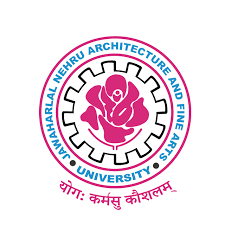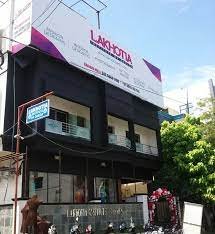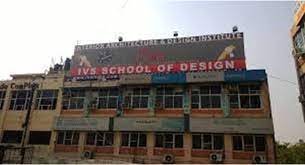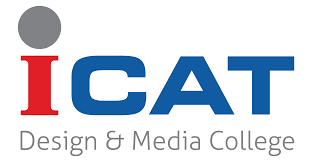Future Scope & Benefits: A PG Diploma in Interior Design opens doors to diverse careers like interior designer, consultant, or entrepreneur. Gain skills in sustainable design, enhancing employability and enabling contributions to eco-friendly spaces.
Future Scope & Benefits for PG Diploma in Interior Design Course
A
Postgraduate Diploma (PG Diploma) in Interior Design is an advanced academic program that equips students with the knowledge, skills, and expertise necessary for a successful career in the field of interior design. This course goes beyond basic design concepts and delves into the intricate aspects of interior design, including design principles, project management, spatial planning, materials, technology, and aesthetics. In this comprehensive guide, we'll explore the future scope and benefits of pursuing a PG Diploma in Interior Design.
Future Scope of PG Diploma in Interior Design
-
Industry Demand and Growth: The demand for skilled interior designers is expected to grow as the real estate and construction industries flourish. Increasing urbanization and a rising focus on aesthetics have significantly contributed to the demand for interior design services. As businesses and homeowners seek unique and functional spaces, the need for proficient interior designers is on the rise.
-
Diverse Career Opportunities: With a PG Diploma in Interior Design, graduates can explore a wide array of career opportunities. They can work as interior designers, design consultants, project managers, space planners, furniture designers, set designers, lighting designers, or even start their own design firms. The diverse range of career options allows graduates to choose a specialization that aligns with their interests and skills.
-
Residential and Commercial Sectors: The residential and commercial sectors offer significant opportunities for interior designers. In the residential sector, designers create functional and aesthetic living spaces for individuals or families. In the commercial sector, they design offices, retail spaces, restaurants, hotels, healthcare facilities, and more. Both sectors present ample opportunities for career growth and specialization.
-
Sustainable Design and Eco-Friendly Practices: The emphasis on sustainability and eco-friendliness in design is growing rapidly. Interior designers with knowledge of sustainable design practices and green building principles are highly sought after. The increasing awareness of environmental issues and the need for sustainable solutions in the design industry make this a promising area for future career growth.
-
Technology Integration: Technology is transforming the field of interior design. Virtual reality (VR), augmented reality (AR), and 3D modeling software are becoming essential tools for designers. Proficiency in these technologies allows designers to create virtual walkthroughs and realistic simulations, enhancing their design presentations and client interactions.
-
Global Opportunities: The globalization of design trends and the ability to collaborate with clients and teams worldwide present exciting global opportunities for interior designers. Graduates with a PG Diploma in Interior Design can work internationally, contributing their expertise to projects in different countries and cultures.
-
Entrepreneurship and Freelancing: Many graduates choose to start their own interior design firms or work as freelancers. The PG Diploma equips them with the necessary skills to manage projects, handle clients, and understand the business aspects of the industry. Entrepreneurship offers creative freedom and the potential for financial success.
Benefits of PG Diploma in Interior Design
-
Comprehensive Skill Development: The PG Diploma curriculum provides a well-rounded education in interior design. Students learn design principles, project management, space planning, material selection, color theory, and various design software applications. This comprehensive skill development prepares graduates for the demands of the industry.
-
Industry-Relevant Knowledge: The curriculum is designed to align with industry requirements and trends, ensuring that graduates are up to date with the latest developments and technologies in the field of interior design. This knowledge relevance enhances employability and professional growth.
-
Practical Experience and Projects: Many PG Diploma programs offer opportunities for hands-on experience through internships, workshops, and real-world design projects. These experiences provide invaluable practical insights and prepare students to handle real client projects upon graduation.
-
Professional Networking Opportunities: During the course, students often have the chance to interact with industry professionals, attend industry events, and visit design studios. Building a network of industry contacts can open doors to internships, job opportunities, collaborations, and mentorship.
-
Portfolio Development: Throughout the program, students work on diverse design projects, allowing them to build a strong and varied portfolio. A compelling portfolio showcasing their skills, creativity, and versatility is crucial for securing employment in the competitive field of interior design.
-
Credibility and Recognition: Having a PG Diploma in Interior Design adds credibility to a designer's profile. It demonstrates a higher level of education and expertise in the field, making graduates more attractive to potential employers and clients.
-
Personal and Professional Growth: Pursuing a PG Diploma in Interior Design is not just about acquiring technical skills. It's a journey of personal and professional growth, fostering creativity, critical thinking, problem-solving abilities, and an understanding of design ethics and responsibilities.
-
Opportunities for Specialization: The PG Diploma often allows students to specialize in areas such as residential design, commercial design, hospitality design, sustainable design, or set design. Specialization enhances expertise in a specific domain, making graduates highly sought after in that niche.
 2 Years
2 Years
 Post Graduate
Post Graduate
 Fashion Design and Technology
Fashion Design and Technology
 Full Time
Full Time





















 back
back